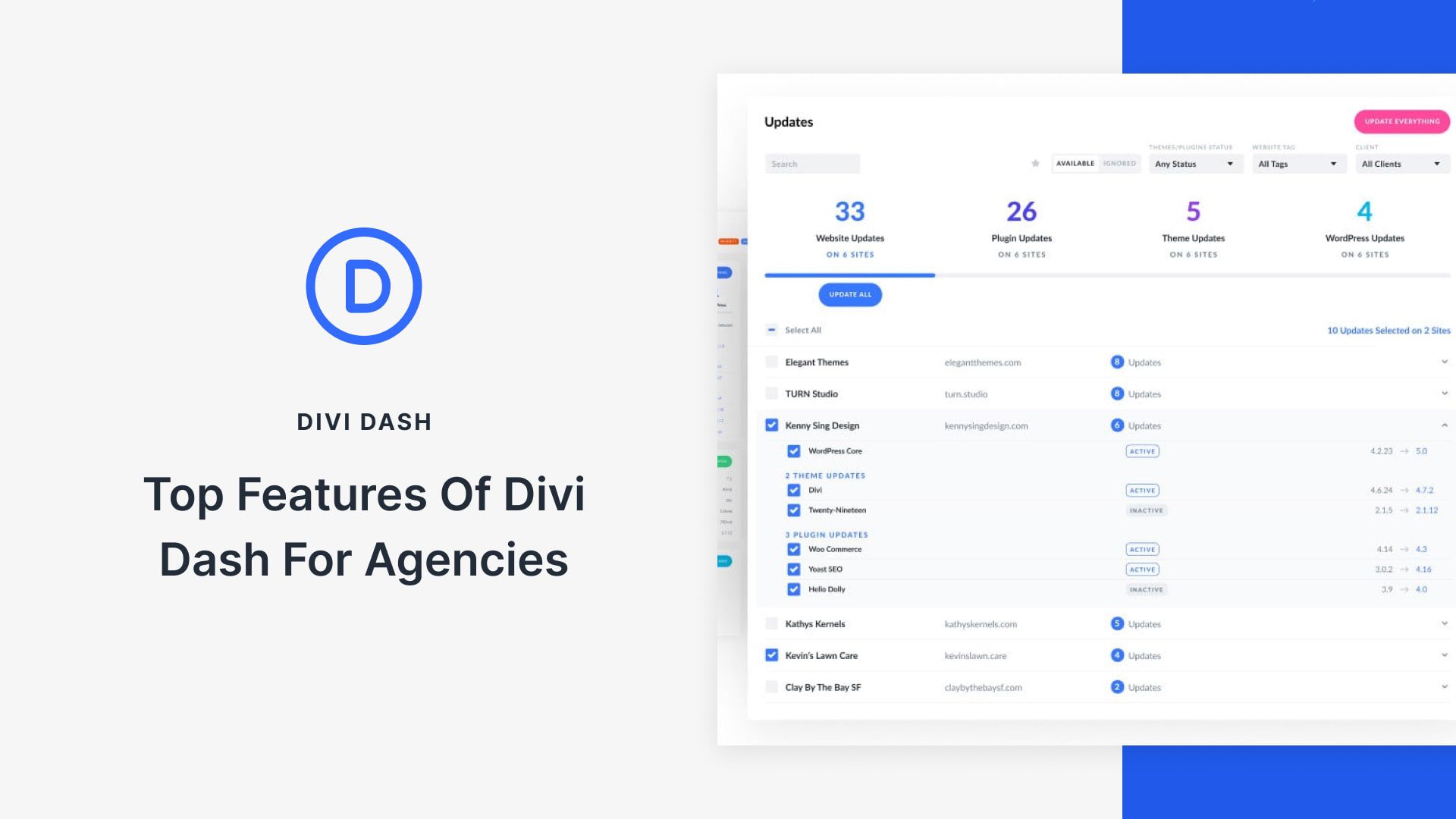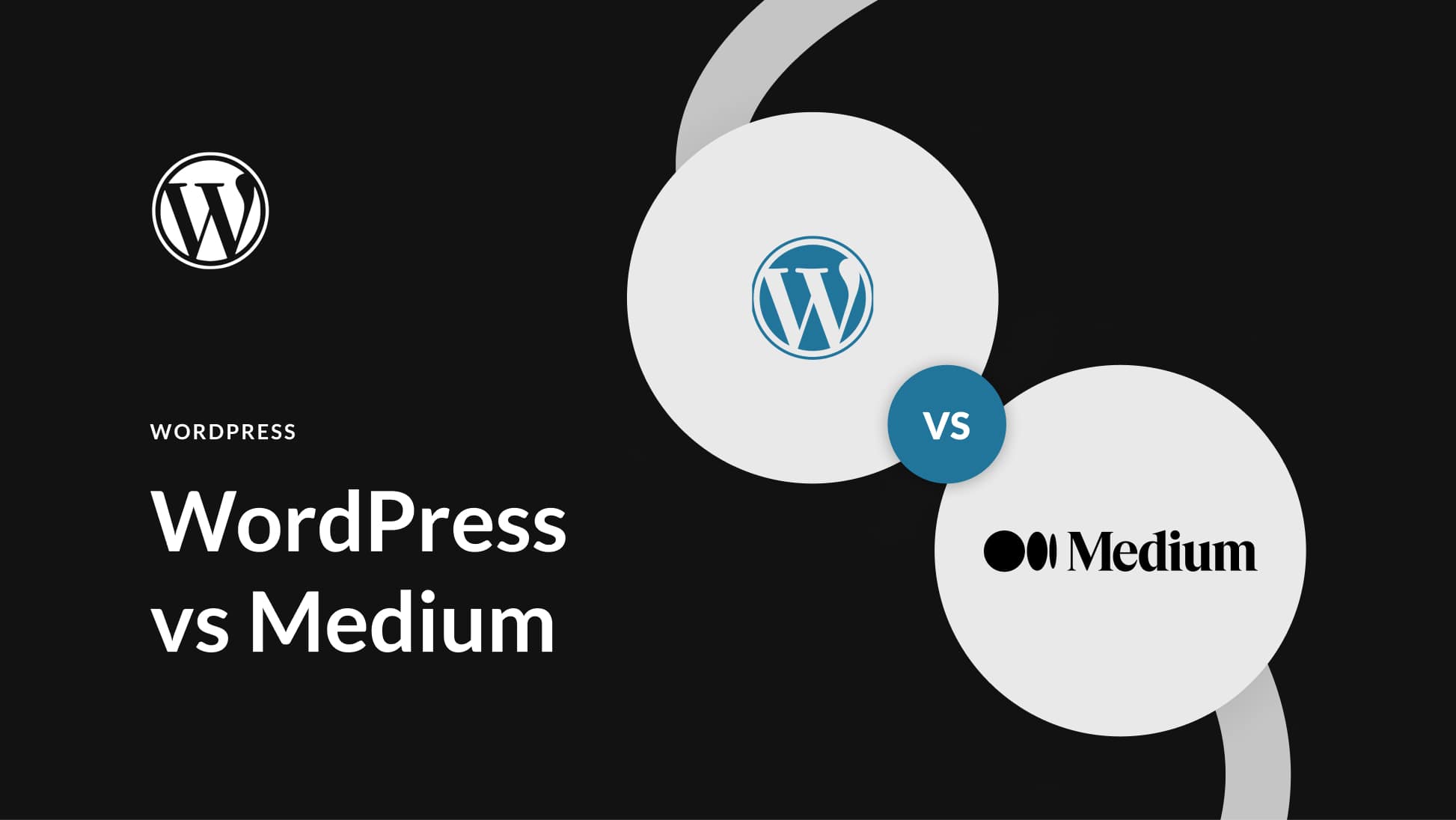Everywhere you look it seems like the number one piece of business advice being dished out these days is that you need to target a niche. And it seems to make sense, doesn’t it?
But if that’s the case, why do so many WordPress design or development companies staunchly avoid defining a specific target market?
I suspect that the answer is fear. It can be fear of picking the wrong niche, or it can be fear of missing out on opportunities outside your chosen niche. But is this fear rational? Have you considered what not picking a niche might be costing your business?
In this post we’ll explore some of the pros and cons of picking a niche for your WordPress business. Maybe you’ll discover a better, more profitable way of attracting clients exists!
What Is a Niche?
To paraphrase Wikipedia, a niche is defined as:
A specific vertical to which your product or service is targeted. A niche can be defined by a specific need or requirement, a price range, quality and/or a demographic.
Picking a niche is not a new concept. Businesses have been tackling niche markets since the beginning of commerce. In the middle-ages, you could choose to be an armorer, an apothecary or a blacksmith. Specializing in all three was never an option worth considering.
When you need to hire a lawyer, you look for someone who specializes in the specific type of law you are dealing with – whether it’s family, business, real estate or securities law. You’ll never find a lawyer willing to practice law for any client who happens to knock on their door.
As a WordPress developer, you could pick a niche based upon a particular vertical. Targeting a specific industry, profession or trade – for example dentists or law firms. Or you could pick a niche market that is horizontal; choosing to provide a specific service to a wide variety of sectors, industries, and professions. Maybe you choose to specialize in building WordPress landing pages.
Neither method of selecting a niche is wrong. Some developers prefer to focus on a vertical, while others decide that their specialty applies to a variety of markets.
To Niche or Not to Niche
The most common argument you’ll hear the pro-niche crowd touting is would you rather be:
- a small fish in a big pond, or
- a big fish in a small pond?
Clearly, being a big fish in a small pond presents a more appealing opportunity – providing there is enough water in the pond for you to survive. Eating up your competition becomes more viable when you have knowledge and experience to back you up.
Like all good debates, there are two sides to this story, although it is admittedly easier to present a strong case for pro-niche than it is to argue against it. I might go so far as to say that niching is rarely a bad idea, with the exception of one specific situation which I’ll cover shortly.
Pros
When you started your business, you probably had high expectations. You were optimistic about the prospects of jumping into WordPress and, with tens of millions of websites built on the platform, how could you not be?
But it doesn’t take long before some challenges and questions arise, all of which are strong indicators that you might want to consider picking a niche that is more defined than just “WordPress Developer”. Some of the more common challenges include:
You’re Struggling to Attract Clients
It’s estimated that in the US alone there are over 141,000 web developers (a government statistic, so add a grain of salt) and that still leaves the rest of the globe unaccounted for. In a marketplace that large, you’re going to have to make a tough choice. You can decide to stand out from the crowd, or you can blend in with the masses. Just realize, the more you blend in, the more you have to fight for a small piece of the pie.
If you’re struggling to attract clients, it might be a good idea to question the clarity of your marketing message. Do your prospects know exactly who you serve and how you can help them?
Look at it this way: If you were a lawyer who needed a new website, who would you prefer to hire:
- XYZ WordPress Website Development
- LegalWeb – Strategic Web Consulting for Lawyers
In most cases, you can bet the person who gets the phone call will be LegalWeb, the strategic consulting firm. They appear to offer a clear advantage to any lawyer who is serious about attracting new clients.
You’re Not Charging Enough
Looking at the example above, who do you think is capable of charging more for their services? Even if both web developers were providing the exact same services, the perceived value associated with LegalWeb far and away exceeds that which is demonstrated by the more generic option.
By serving a niche market you’ll be able to charge higher rates for your services, and if you take the time to acquire knowledge specific to your target market and become capable of helping them grow their business, you may find yourself in a position to charge several multiples higher.
You’re Capable of Becoming an Expert
Have you considered whether or not you could become an expert in one particular field? As a WordPress developer, if you feel like you have expertise, knowledge or connections in a particular field, could it possibly provide you with an edge over your competition?
If you became the go-to developer for veterinarians, real estate agents or restaurants in your area would it provide you with an advantage resulting in more business? Most of the time, the answer is yes!
Business owners want to feel good about who they are hiring and that includes having confidence that you’ll get the job done right. Being able to look at your portfolio and see that you’ve worked successfully with other businesses just like theirs is often enough to seal the deal.
Cons
As with all good ideas, there is always another side of the coin. The arguments against defining a niche are few and far between, but they do exist. Typically, developers will present the following concerns about selecting a niche market:
Missing Out on Business
Feeling like you are going to miss out on projects is a common fear that almost everyone faces when they start considering a potential niche.
However, it often turns out to be unfounded. Yes, most of the new business you attract will be from your desired niche, which is the whole point. But if experience is an indicator, you’ll also end up attracting business from referrals outside your niche – people who are associates or friends of clients who want you to do the same great job for them.
As your business grows, you’ll eventually find yourself in a position to either accept or turn away work that falls outside your area of expertise.
Picking the Wrong Niche
Yes, you might. Although we’re going to cover some ideas that alleviate this potential scenario, it may still happen. What can you do about it? Pivot.
As with any other area of your business, if you find something isn’t working, make the necessary shift and get back to work. You’re never going to be in a position where anything is guaranteed to work, so do your research, measure your results and make changes where required.
You Already Have a Strong Reputation
This is one argument that actually carries some weight. If you’ve been in business for a period of time and have built a reputable and profitable business, it’s probably not in your best interests to make any drastic changes.
Maybe you’re one of the leading WordPress development companies in your city. Maybe you’ve already built an established clientele that consistently produces quality referrals. If that’s the case, think carefully before you decide to make drastic changes.
Obviously there are variations to this scenario. Have you built a large business but find that 70% of your profit comes from a specific industry? Or perhaps you’ve built a business that isn’t profitable simply because you’re juggling too many balls at once. Both of these scenarios would place you right back in the hunt for a profitable niche.
How to Transition to a Niche Business Model
If you’ve decided that selecting a niche is right for your business, you’re probably wondering what the next steps should be. It’s not as difficult as you might think, and following a few simple steps will increase your odds of hitting your target the first time.
1. Create a List of Your Previous Clients
If possible, this is the first place you should look for ideas surrounding an ideal target market. Take a close look at who your clients are and what industries they’re in. Also consider which clients provide the ideal balance between profitability and low maintenance. The highest profit and highest maintenance client might not be the best option.
2. Do You Have Established Expertise?
Consider your educational experience. If you have a degree in biology or you’re a psychology major, could you use that knowledge to your competitive advantage? Alternatively, if you’ve built websites for six dentists in the last 12 months, there’s a pretty good chance you’ve developed a firm grasp of the language they use and how they typically communicate with their patients. The more you know about a client’s particular business, the more value you’ll be able to provide. Use your knowledge to your advantage!
3. Does a Market Exist? (Is the Pond Too Small?)
There are good markets and bad markets. Just because you’re also an aspiring artist on the side, does not mean you should automatically decide to target artists for your WordPress business!
One of the most important considerations when selecting a niche is its overall ability to pay for the services you plan to provide. Are you targeting an industry that sees a growing demand for services or products? Is your target market typical a profitable business to be in? How do they attract new customers?
4. Who Are the Competition?
Don’t be afraid of the 500lb gorilla, as long as you can spot a weakness. Competition isn’t necessarily a bad thing and in many cases it’s a positive sign. If a profitable market exists for the services you’ll be offering, it’s a safe bet that there will be some competition. Don’t get caught in the trap of searching for a competition free environment.
When you examine your competition, ask yourself if there is an area of the market they have yet to tap into. Is there something they are doing that you could improve upon? Look for a unique angle – something that will allow you to carve out your own unique piece of the pie.
5. Can You Provide ROI?
Critical to the longevity of your business will be your ability to provide adequate ROI and value to your clients. You can’t get away with charging premium rates for long if there is nothing substantive to back it up.
Remember though, value rests in the eye of the beholder. Don’t make assumptions about what your clients or target market might find valuable. Ask them! When you have a clear picture of what your clients need, deliver it in the most efficient way possible.
The bottom line is: can your chosen target market afford to pay for the services you’ll be providing and will they understand the value you are capable of offering?
Conclusion
With the exception of WordPress developers who have already built a self-sustaining and profitable business, selecting or refining your niche market could be one of the best choices you’ve ever made.
Even if your business is already successful, there are always opportunities to refine what you are doing: eliminating unprofitable clients and services and doubling down on the areas that provide the greatest opportunity.
Selecting a niche doesn’t guarantee your success, but you’d be hard-pressed to present an argument that doesn’t show that the more specialized you become, the more the odds tilt in your favor.
Have you decided to specialize in a particular niche for your WordPress business? Has selecting a niche been an overall positive experience for your business and what challenges have you faced? Let us know in the comments below!
Image Credit: BoBaa22 / ShutterStock









Great article. I think that the niche is important but time and time again someone new comes into a saturated area and gets all the attention. Why? Just because there is a lot of the same concepts out there does not mean that you can’t stand out, if you’re the best at what you do you will.
Thanks for everything you do for us all!
Tom,
Yes, what you said is obviously the truth. Niche Marketing isn’t a new term for us but most people didn’t realize the power of it.
They are in a delusion that when they move to a specific field, it’s like moving down to a smaller scale as you said with that Fish-Pond example.
They don’t realize they are in a target oriented approach. Even I’ve seen many friends and smart guys who experimented on niche blogging and made unexpected success. However, that’s a completely different field.
And I agree that niche targeting is always the best option in a competitive market and will no doubt work for the smart and hard workers.
I appreciate the recommendation to ‘review my clients’ to see if a niche is emerging.
My web desgin and internet markeing business has been growing slowly and steadily for 4 years, and when I look back,
WORD OF MOUTH has been the most important part of my business growth. Is that a niche? I’m not sure!
I’m celebrating 5 years in my solo WordPress business and was just contemplating that now might be a great time to define the niche I seem to have fallen into by default (and which I’m really enjoying). It’s time for a website revamp, and the launch of Divi 2.4 combined with this article is the nudge I needed. Thank you!
Nice article and well written.
To specialise in a vertical market takes some time and you need to have enough funds to backup the time it needs to touch these markets in a structured way.
Nice Article
Choosing a niche that you are specialized and interested is a smart option and building your own brand becomes very easy
This is well considered and thoughtful. I’m not sure if all that thought is entirely necessary. Then again, too much thought is an uncommon flaw, so it’s probably best to be on the safe side.
There’s not really much of a downside to picking a niche. Pick a niche you have the skills to compete in, preferably with a decent ratio of demand to competition, and, if it’s too small, expand.
It’s pretty simple to branch as you grow and establish yourself. In fact, it tends to happen organically when a client says, “I liked the way you did Y, can you do X?” And you say, “Sure, I like money.”
How do you guys do it? Almost every post covers a concern I’ve been considering that very day.
I have been in business for about 5 years and have grown successful, but have always wondered about defining a niche. There are several that would make a LOT of sense for me.
You left out one important reason not to focus, the one that keeps me from doing it. The fear of boredom, stagnation. When I imagine myself focusing on one business sector, I feel stifled just thinking about it. BUT…. I do have too many balls in the air, and focusing would probably make me much more efficient…..
Thank you for the post-
Thanks Tom,
Great article as always 🙂
Thanks for sharing & Enjoy Life 🙂
Tom,
You are right that picking a niche can set you apart from the pack. I learned this firsthand after I started offering animated video production through my main WordPress design & development business last year. I had no idea how in demand this service was and I outperformed my first year goal of selling 20 videos by approximately 600%. As a result I started a niche website (using divi of course) to promote this service and the initial response has made it somewhat of an instant success. Creating a niche business is great because it allows you to streamline your marketing and position yourself as an expert. Thanks for a great article.
I think for a word-press developer or for that matter any business, it is always wise to chose a niche, stick to it, master it and then move on to the next one. This way you get to master many niches over a period of time and cater to a wider clientele.